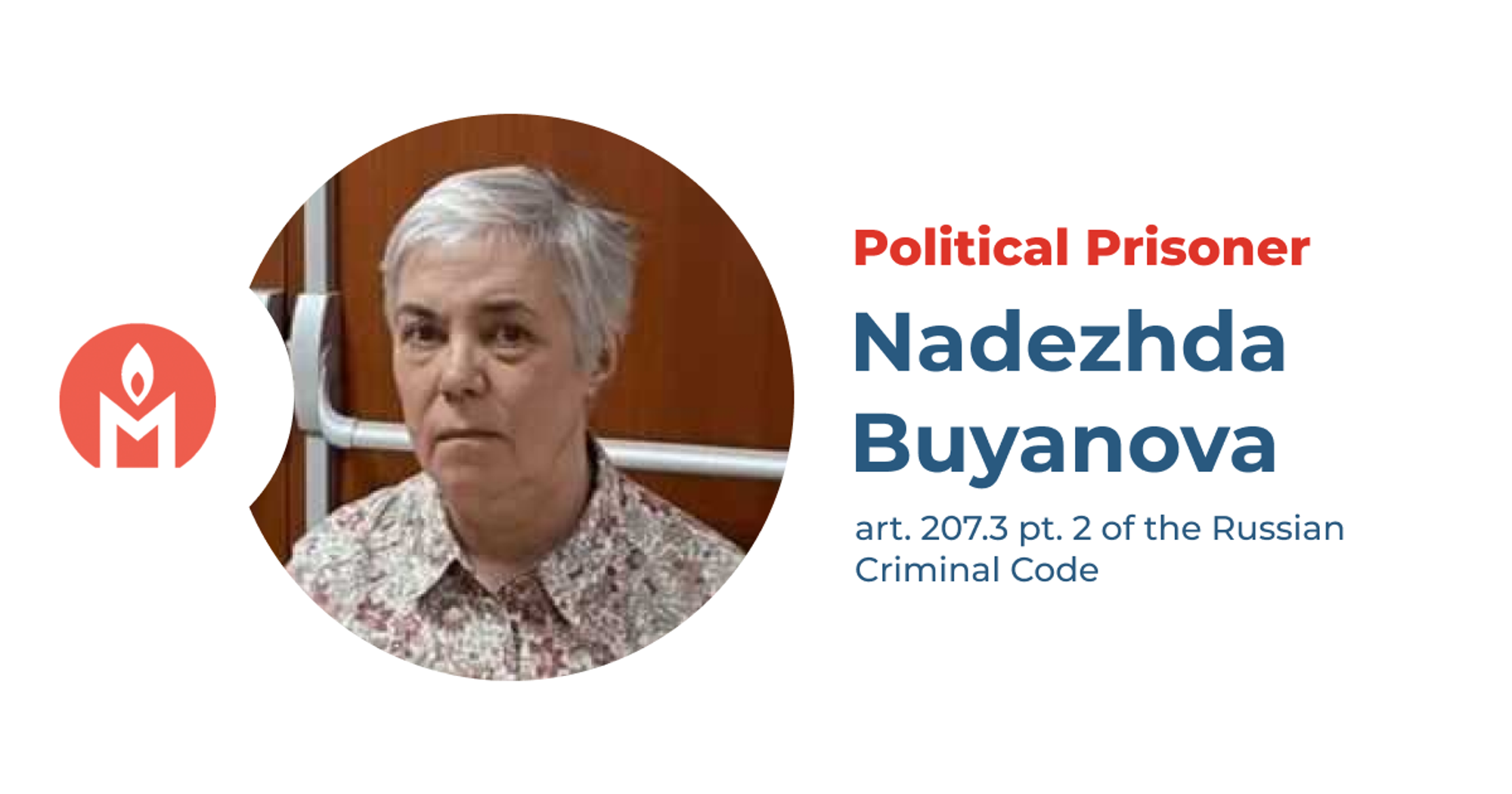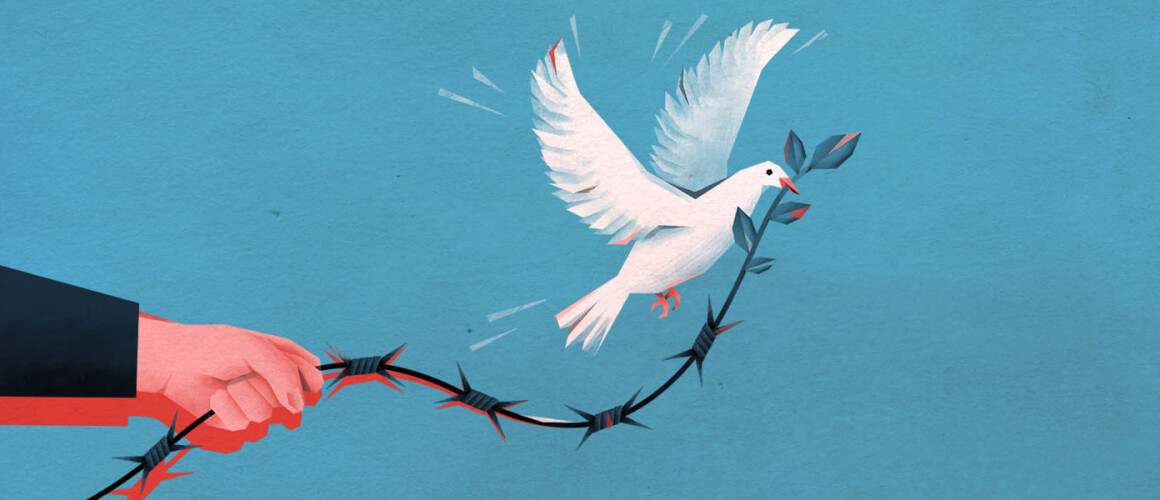Nadezhda Buyanova is a political prisoner
The 68-year-old paediatrician from Moscow has been remanded in custody for allegedly saying that a soldier taking part in the ‘Special Military Operation’ was a legitimate target for the Ukrainian military
The ‘Political Prisoners. Memorial’ human rights project, in accordance with international standards, considers Dr Nadezhda Buyanova a political prisoner. Buyanova is being prosecuted for spreading ‘fake news’ about Russia’s army for a comment she made while seeing a patient. Buyanova’s criminal prosecution violates her rights to freedom of expression and fair trial. We demand the immediate release of Nadezhda Buyanova, the termination of her criminal case, and her reinstatement in her job.

Who is Nadezhda Buyanova and what are the charges against her?
Nadezhda Buyanova is a paediatrician from Moscow who was born and studied in Lviv in today’s Ukraine.
On 31 January 2024, Anastasia Akinshina, after attending Dr Buyanova’s appointment with her child, recorded a video and posted it on the Internet. In the video, Akinshina stated that the father of her seven-year-old son had been killed in Russia’s invasion of Ukraine and when this came up during the appointment, Dr Buyanova referred to Akinshina’s late husband as ‘a legitimate target for Ukraine.’ Akinshina demanded that Dr Buyanova be ‘thrown out’ of Russia and ‘jailed.’ She then reported Dr Buyanova to the police.
On 1 February, Dr Buyanova was dismissed from the polyclinic where she worked and a criminal case was opened against her at the request of the head of the Investigative Committee Aleksandr Bastrykin on a charge of spreading ‘fake news’ about the Russian army (Article 207.3, Part 1, of the Russian Criminal Code). On 2 February, Dr Buyanova’s home was searched in a conspicuously rough manner: law enforcement officers essentially trashed her apartment. The investigative authorities urged that Dr Buyanova be remanded in custody. However, the court ruled she should remain at liberty, but under specific prohibitions.
On 19 April, the charge against Dr Buyanova was made more severe with the addition of the motive of ‘national and political hatred’ (Article 207.3, Part 2, of the Russian Criminal Code).
On 26 April, Dr Buyanova was remanded in custody allegedly because she had changed her place of residence without informing the authorities and did not appear before the investigator when summoned.
On 15 May, Dr Buyanova’s trial began.
Why do we consider Dr Buyanova a political prisoner?
The offence of ‘dissemination of information known to be false about the actions of the Russian army,’ for which Dr Buyanova is being prosecuted, was introduced into the Russian Criminal Code immediately after the beginning of Russia’s full-scale war against Ukraine. In practice, this article prohibits any criticism of the Russian authorities or military, in violation of the right of citizens to freedom of expression. Since this article contradicts Russia’s Constitution, any prosecution based upon it is unlawful.
At the same time, Dr Buyanova denies having uttered the phrases imputed to her, and there is no audio recording of the conversation.
Even if Dr Buyanova had uttered such words, her actions would not constitute a crime. She did not disseminate any information about the actions of the Russian army. She merely stated a fact in law. Under international law, any military service personnel participating in hostilities is a legitimate military target for their adversary.
A detailed description of the case of Nadezhda Buyanova and our position is available on our website.
Recognition of an individual as a political prisoner does not imply the ‘Political Prisoners. Memorial’ human rights project agrees with, or approves, their views, statements, or actions.
How can you help?
You can write to Nadezhda Buyanova at the following address:
In Russian: 109383, Москва, ул. Шоссейная, д. 92, ФКУ СИЗО-6 УФСИН России по Москве, Буяновой Надежде Фёдоровне, 1956 г.р.
In English: Nadezhda Fyodorovna Buyanova (born 1956), Remand Prison No. 6, Federal Penitentiary Service of Russia for the city of Moscow, 92 Shosseinaya Street, Moscow, 109383, Russia.
You can send an email via F-Pismo or Zonatelecom (Russian bank cards), PrisonMail (other bank cards), or OVD-Info (free of charge).
Please note that letters in languages other than Russian are highly unlikely to reach the recipient.
You can donate to support all political prisoners in Russia.

